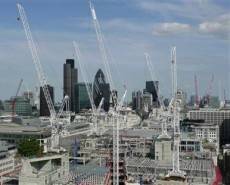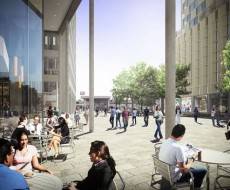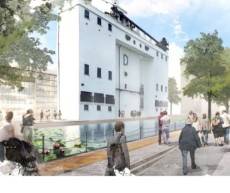May 12, 2014
London large commercial property pipeline leads rest of Europe
 London will be home to 35 new large office buildings before the end of this year making it one of Europe’s most important destinations for major corporates wishing to occupy over 5,000 sq. m. of commercial property, according to a new report from Colliers International. The survey of 23 major European cities found that together they will offer just over 800 readily-available and high quality large scale offices to choose from by the end of 2014. The 2014 EMEA Office Report claims that this year will see London become the city with the joint third highest availability of large offices in Europe, up dramatically from 11th place. London matches Amsterdam in having 60, trailing Paris with 62 and Moscow with 98. London, however, stands out as having a strong pipeline of new large office developments.
London will be home to 35 new large office buildings before the end of this year making it one of Europe’s most important destinations for major corporates wishing to occupy over 5,000 sq. m. of commercial property, according to a new report from Colliers International. The survey of 23 major European cities found that together they will offer just over 800 readily-available and high quality large scale offices to choose from by the end of 2014. The 2014 EMEA Office Report claims that this year will see London become the city with the joint third highest availability of large offices in Europe, up dramatically from 11th place. London matches Amsterdam in having 60, trailing Paris with 62 and Moscow with 98. London, however, stands out as having a strong pipeline of new large office developments.

























April 22, 2014
On Green Earth Day, a reminder of how we struggle to understand ‘green’
by Mark Eltringham • Comment, Environment
(more…)